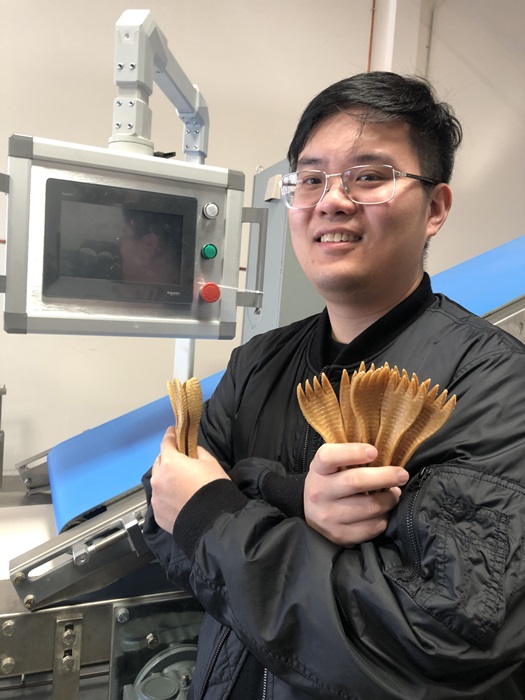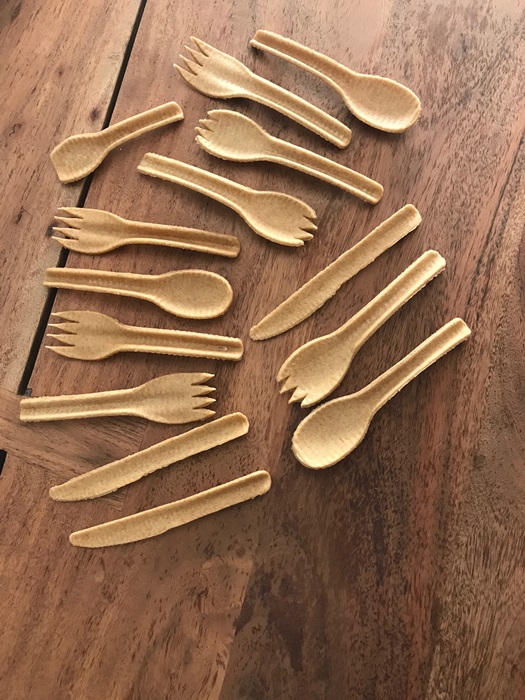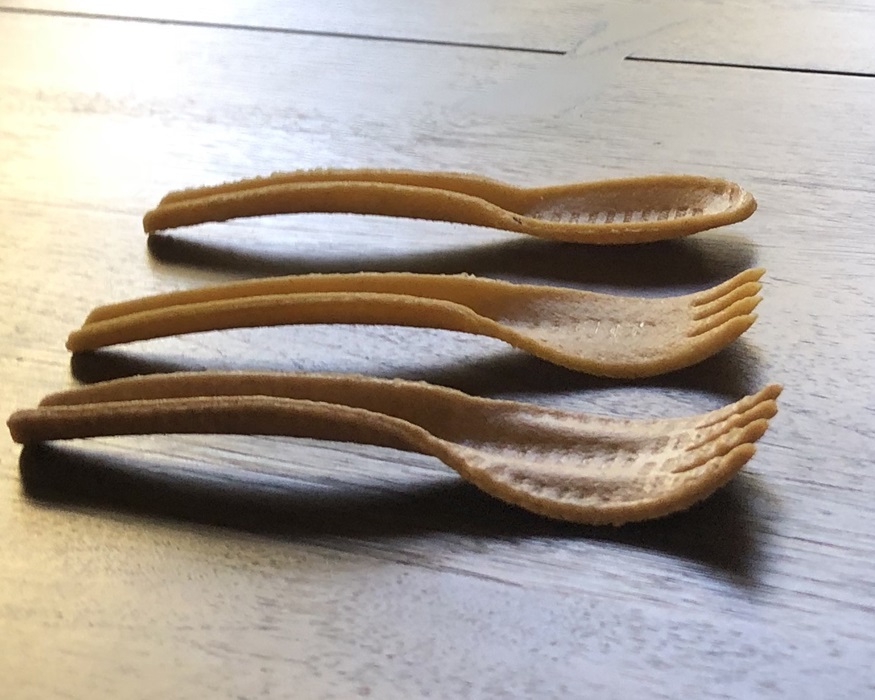Plastic pollution has become a hot-button topic for environmentally conscious consumers and municipal governments. With an average useful life of only 15 minutes, plastic accounts for over 60% of global beach litter, as well as comprises a significant portion of the “Great Pacific Garbage Patch,” now estimated at twice the size of Texas.

As local and national governments recognize the wastefulness of single-use plastic bags over the last decade and are enacting legislative restrictions around their use, the focus of attention has recently turned to single-use plastic straws and utensils, which cumulatively account for staggering amounts of waste annually.
In the United States alone over 40 billion plastic forks, spoons, and knives are disposed of each year. Worldwide, the number of single-use plastic utensils is estimated at 500 billion annually. Millions of fast food restaurants and grocery stores contribute to the explosion of waste, as plastic utensils are hygienic and extremely inexpensive to produce.
Just a Quick Note:
InnovationsOfTheWorld.com has partnered with Trade License Zone (TLZ) to support global innovators looking to expand internationally. Take advantage of the UAE’s Free Zones—enjoy streamlined setup, low corporate taxes, and a strategic gateway to the Middle East and beyond.
Get Your UAE Free Zone License Fast & Easy!While the specific plastic materials most commonly used to manufacture utensils—polypropylene and polystyrene—are technically recyclable, most recycling plants will not accept them because they are difficult to process and not cost effective per unit to recycle.
With the vast majority of plastic utensils ending up in landfills or oceans, it is imperative that alternative, eco-friendly, and cost-efficient solutions be developed.In 2017 Zack Kong founded TwentyFifty, a San Diego–based company, to address the significant global demand for functional, 100% biodegradable and zero-waste alternatives to plastic utensils.

Zhicong Kong, Founder and CEO
Design criteria included mechanical properties, better biodegradability in the form of compostable waste management, minimal supply chain carbon emissions footprint, and cost-competitiveness with current plastic offerings.
TwentyFifty’s primary innovation lies in designing and manufacturing utensils exclusively from natural grains. TwentyFifty’s bioengineering team discovered that the two key factors to developing strength in grain-based functional utensils are density and molecular bonding.
To increase the density of product, the water percentage in the raw dough must be restricted. This requirement directly conflicts with the basic premise of injection molding techniques used for plastic utensils, which require liquefying the injected material, whether molten plastic or raw dough, in the case of TwentyFifty’s proposed product.

Armed with this particular insight, TwentyFifty developed an all-new, innovative mold technology that allows a dough with extremely limited water content to form a high strength product. TwentyFifty spent a year refining its groundbreaking mold through seven iterations with the help of 3D printing and rapid prototyping.
The final molds are intended for use in a fully automatic production setting, with maximum capacity and yield on an industrial scale of production.Another key consideration in TwentyFifty’s business planning was sustainable supply chain management (SCM).
While the initial utensil formulations comprised three staples of US agriculture—wheat, corn, and soy—it would not be environmentally responsible to export these flours around the world simply to make compostable utensils; the carbon footprint involved in materials transportation would soon negate the benefits of biodegradability in a full lifecycle analysis.
For this reason, as well as to keep costs to the absolute minimum, as required of any commodity product, TwentyFifty found it essential to define specific formulas for each of the earth’s agriculturally distinct regions, covering nearly 60% of the world’s population.

For example, because sunflower seeds are readily available in Europe, the European formula uses sunflower-seed flour in place of soy flour; in Southeast Asia, the byproduct of palm oil extraction is a key ingredient; in tropical zones, wheat is reduced and even eliminated; in less temperate zones, rice does not figure as a significant component in the formula.
Under the banner of its TwentyFifty brand, in March 2019 the company debuted its first fork product at the Natural Products Expo West show in Anaheim, where the company was honored to receive recognition as a 2019 NEXTY Award Finalist as one of the best new natural living products.
With a production facility now operating in Oceanside, California, the company has a phased scale-up manufacturing plan to meet market demand from thousands of utensils per day to millions per day.
Even as they contemplate these exciting prospects of growth, however, and as a member of the American Sustainable Business Council (ASBC), the team at TwentyFifty remains mindful of its Triple Bottom Line (TPL) mandate, which includes people and the planet, as well as profitability within a total sustainability framework that examines the company’s social, environmental, and economic impact.














